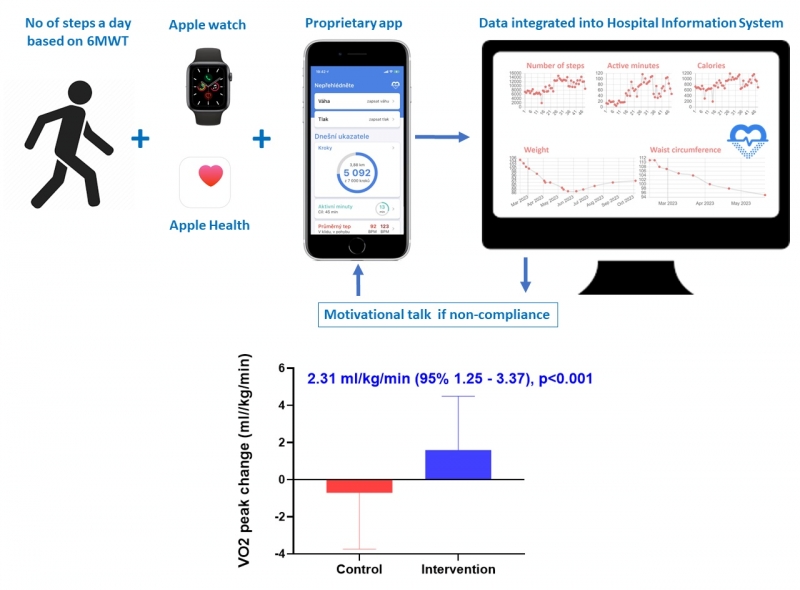REMOTE, SMART DEVICE-BASED CARDIAC REHABILITATION AFTER MYOCARDIAL INFARCTION – RANDOMIZED CROSS-OVER SMARTREHAB STUDY.
Background After myocardial infarction (MI), increasing functional capacity is an important goal of cardiac rehabilitation, that improves prognosis. However, standard rehabilitation is not accessible to many patients. Telemedicine programs are emerging as promising alternatives to in-person programs, but evidence confirming their benefits is lacking. This pilot study aimed to evaluate the effect of smart device-based telerehabilitation on VO2peak in patients after MI.
Methods This was a single-center, randomized, cross-over study with a 3-month intervention. One month after MI, patients had CPET and a 6-minute walking test (6MWT) and were randomized 1:1. In the intervention group, patients received a smartwatch to track the recommended number of steps, which was derived from the 6MWT. Adherence to the recommendations was telemonitored by a study nurse. In the control group, usual care was recommended. After 3 months study arms were crossed over, and study procedures were repeated after 3 months.
Results In total, 64 patients were randomized, of which 61 (aged 51±10 years, 10% women) completed the study. At the end of the study and including the effect of the intervention in both groups, smart device-based telerehabilitation led to 2.31 ml/kg/min (95% CI 1.25-3.37, p<0.001) VO2peak increase as compared to control. Furthermore, there was a significant effect on weight (-1.50 kg, 95% CI -0.39 to -2.70), while the effect on 6MWT distance (4.7m, 95% CI -11.8 to 21.1) or KCCQ score (0.98, 95% CI -1.38 to 3.35) was not significant.
Conclusions Smart device-based cardiac rehabilitation improves functional capacity after myocardial infarction.


